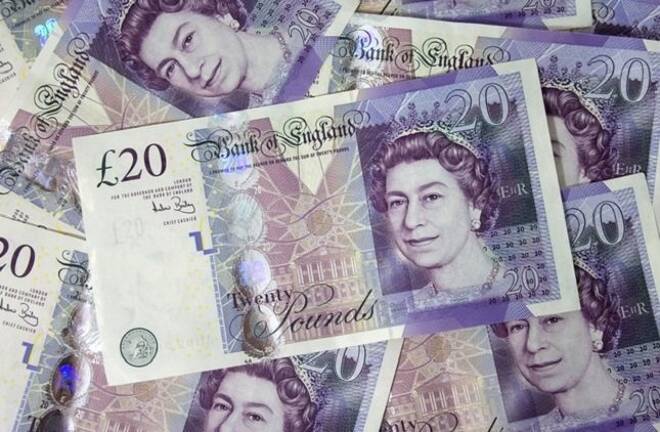Advertisement
Advertisement
Can Traders Expect a Stronger GBP as Theresa May Calls for Snap Elections?
By:
The British pound seems to have entered a rapid recovery phase in the forex markets as it starts to creep up in value against rival currencies. The main
The British pound seems to have entered a rapid recovery phase in the forex markets as it starts to creep up in value against rival currencies. The main factor behind the uptrend in the GBP this week is breaking news indicating that Theresa May is planning to conduct snap UK general election on June 8. Political commentators think that the snap elections will help Theresa May seek a direct mandate to continue the Brexit process and negotiations.
Theresa May will be hoping that the snap election will help her increase the majority in the house of commons to lead negotiations on her own mandate while ditching some items in the Tory manifesto from the 2015 elections. The snap elections will also help her lead negotiations from a position of strength without being distracted by political bickering in the home front. This piece seeks to examine the effect of recent developments on the pound and the UK economy.
Here’s How the Pound Has Fared Since Brexit Vote
You’ll remember that the Pound has been on a mostly downward spiral since June 2016 when Britain voted to leave the European Union in an historic Brexit vote. In the immediate aftermath of the Brexit vote, the Pound fell to a 31-year low against rival currencies. In fact, the pound crashed as much as 10% with the GBP/USD dropping to $1.33 from $1.50 to mark the lowest point 1985.
The decline in the pound also foreshadowed weakness in the general economic landscape of the United Kingdom. For instance, the FTSE 100 share index declined by more than 450 points to wipe up about £100bn from the value of shares in the UK.
Theresa May triggered Article 50 that would begin the formal process of divesting the UK from the EU. The official process of divesting the UK from the EU has already triggered apprehensions that the pound, the UK economy, and UK stocks might enter into a new season of increased volatility and uncertainties.
The Pound Might Have Entered a Recovery Phase
The British pound is back in recovery mode and it is already making its way towards new highs after Prime Minister Theresa May revealed that she’ll hold snap elections on June 8. Theresa May in her words had noted that “we need a general election and we need one now”; otherwise, the elections will hold during the trickiest parts of the Brexit negotiations.
On Tuesday, April 18, the pound began a rapid northbound ascent that sets it on the path to book its best trading day in the last three months. The pound was up 1.33% to $1.2753 to score its biggest one-day gain since January 17. The pound also booked decent gains against the Euro and Yen as pound bulls become more convinced that Theresa May can be trusted to make proactive decisions to protect the country’s economic interests.
Anselm Rodgers, an analyst who provides market commentary on Saxon Trade observes that “the pound is the biggest winner from today’s events as pound bulls are confident that Theresa May will gain a majority in the polls.” He also observed that the resultant weakness in the FTSE 100 should not be mistaken for weakness in the general economic landscape of the UK because most of the companies in the FTSE 100 have global operations and they tend to suffer currency headwinds from volatility in the forex markets.
Interestingly, the recovery in the pound didn’t necessarily mean broad-based gains across the general economic spectrum in the UK. For instance, the gains in the pounds triggered a panic attack that caused massive losses among blue chip stocks in the UK. The FTSE 100 declined by as much as 2.4% on April 18 to mark the biggest decline in the large cap blue chip index since February 2. The massive decline in the FTSE 100 shaved off as much as £45.7bn from the value of UK’s biggest firms to mark the largest decline since the news of the Brexit vote broke last year.
About the Author
Guestauthor
Advertisement
